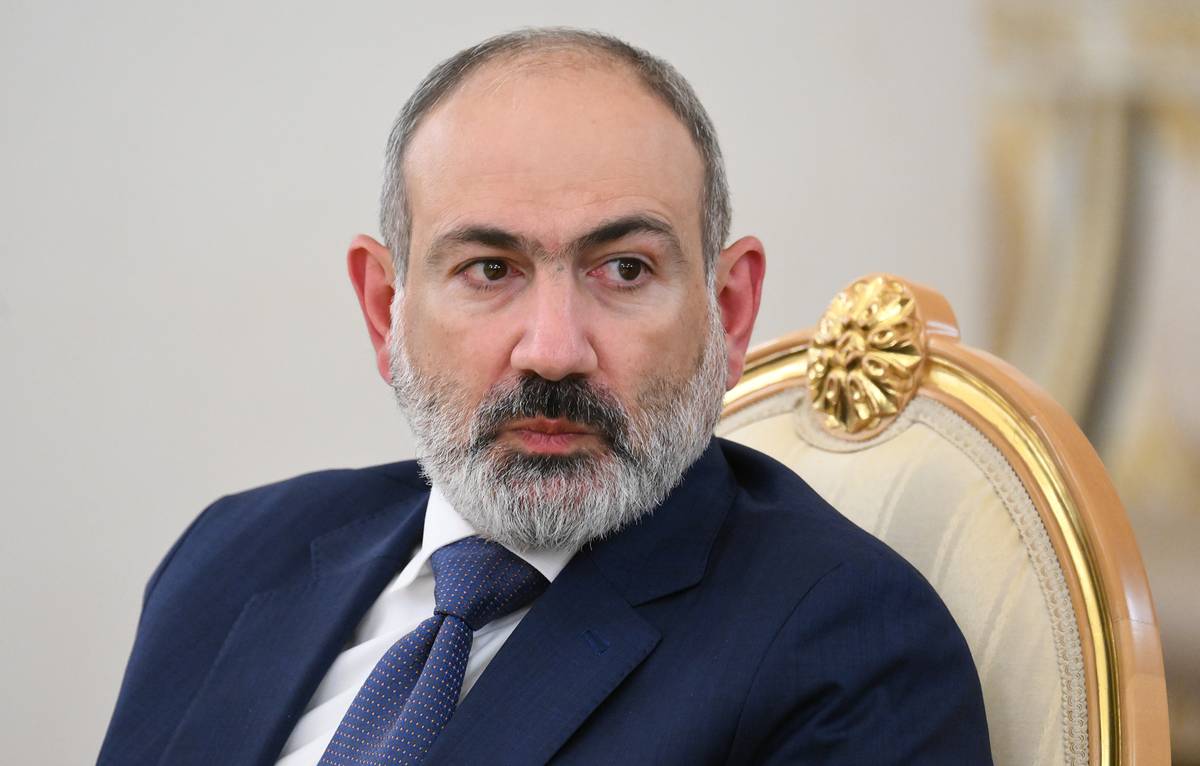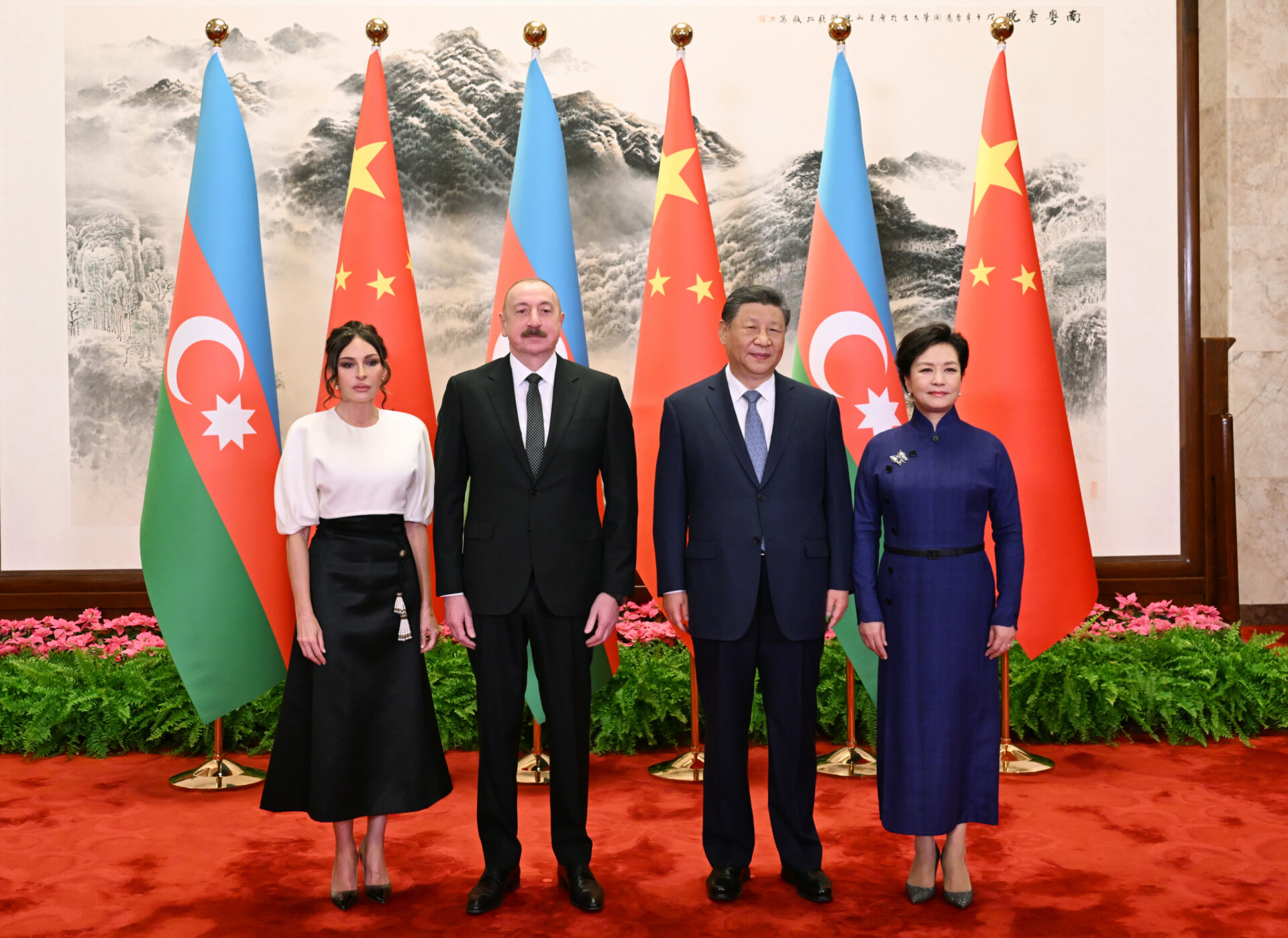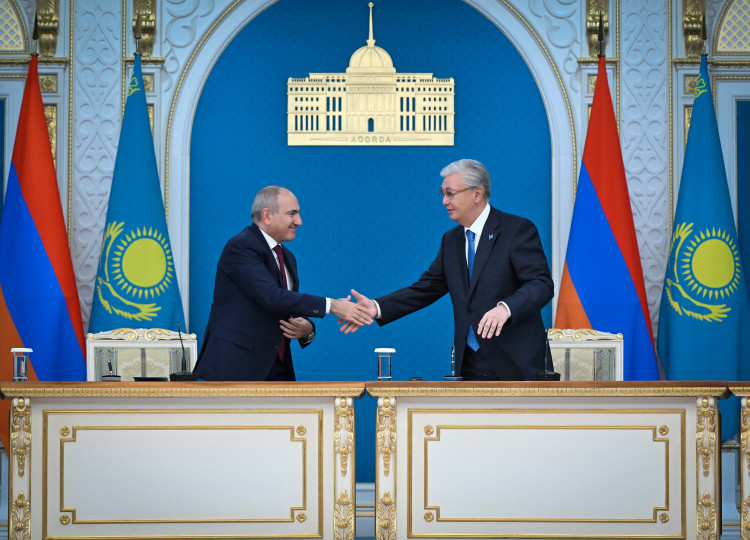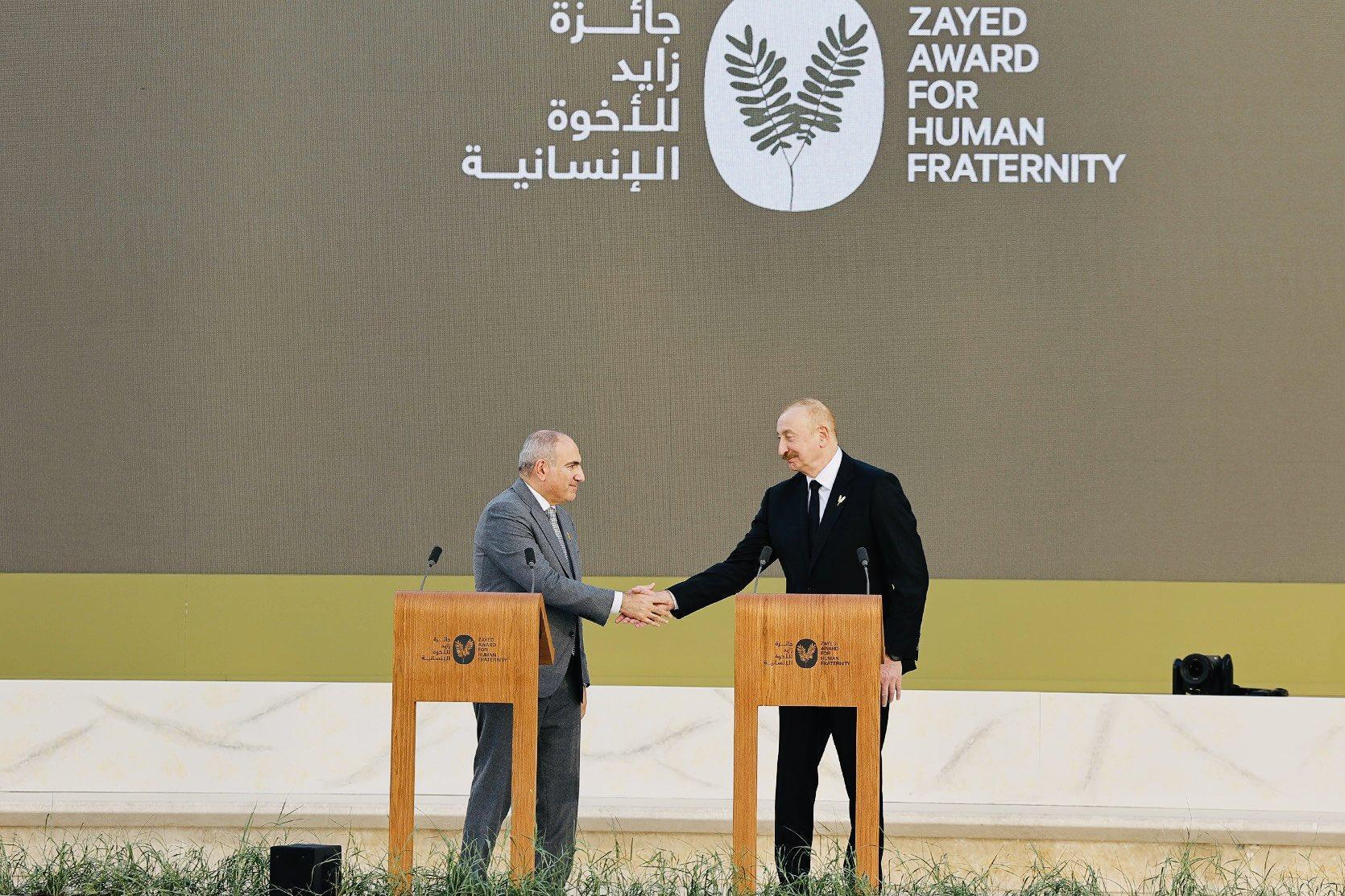
Constitutional Delay in Armenia Threatens to Derail Peace Talks With Azerbaijan
Constitutional Delay in Armenia Threatens to Derail Peace Talks With Azerbaijan
Executive Summary:
- In June, Baku reiterated its demand that any peace agreement must explicitly address changes in the Armenian Constitution, including the removal of what Azerbaijan and Türkiye perceive as territorial claims against them.
- Since taking power in 2018, Armenian Prime Minister Nikol Pashinyan has sought to revise the constitution, but efforts have been derailed by the COVID-19 pandemic, ongoing conflict with Azerbaijan, and snap elections.
- Government officials and commentators in Azerbaijan have asserted that the constitutional reforms should be implemented on a deadline if a peace agreement is to be signed, while the situation in Armenia remains unclear.
On June 19, Armenian media revealed that Prime Minister Nikol Pashinyan had signed an executive order on May 24 instructing the Council for Constitutional Reforms to “draft a new constitution from scratch” by January 2027 (Azatutyun, June 19). The announcement surprised many, as the council, established in 2022, had already finalized work on proposals for constitutional amendments earlier this year. While Pashinyan had previously considered replacing the constitution entirely, he has acknowledged a minimal need for changes in governance. The renewed focus on constitutional reforms comes as Azerbaijani officials have been calling for the removal of territorial claims within the Armenian Constitution against Azerbaijan and Türkiye, which has become a main point of contention in peace talks between Baku and Yerevan (Anadolu Agency, June 6; Apa.az, June 25).
At the beginning of the year, the Armenian premier said that the country should have a constitution “adopted by the people of Armenia” with “results of a vote that do not give rise to doubts” (Armenian Prime Minister, January 19). Pashinyan was referring to referenda held in 2005 and 2015 that were marred by opposition claims of voter fraud and low-voter turnout (Eurasianet, November 29, 2005; December 7, 2015). In January, he concluded that Armenia would benefit from a constitution that makes the country “more competitive and viable in new geopolitical and regional conditions,” a comment many took as referring to normalizing relations with neighboring Azerbaijan and Türkiye (ArmInfo, January 19).
Yerevan’s past plans for a referendum to amend the constitution were postponed by the COVID-19 pandemic, the Second Karabakh War in 2020, and snap elections in June 2021 (see EDM, January 31). Last year, discussions also included proposals to replace state emblems and remove a controversial preamble asserting territorial claims within Azerbaijan and Türkiye.
Earlier this year, Azerbaijani President Ilham Aliyev reiterated calls to remove references to Armenia’s 1990 Declaration of Independence and the 1989 joint statement on the “Reunification of the Armenian Soviet Socialist Republic and the Mountainous Region of Karabakh” (Azatutyun, February 1). In early June, Aliyev stated that Azerbaijan would not sign a normalization agreement with Armenia unless the preamble was removed (Azatutyun, June 6). “The signing of a peace treaty between Armenia and Azerbaijan is simply impossible if the existing constitution of Armenia remains unchanged,” Aliyev declared. In response, the Armenian Foreign Ministry denounced Aliyev’s remarks as “blatant interference in the internal affairs of our country” (Azatutyun, June 7).
The peace agreement currently under negotiation includes clauses preventing domestic laws from breaching the treaty after ratification. Pashinyan has nonetheless admitted that the preamble includes a “confrontational narrative within the regional environment that [has] kept us in constant conflict with our neighbors” (Civilnet.am, January 20). That sentiment has been challenged by opposition figures who accuse him of yielding to Baku’s pressure (see EDM, April 8).
Some past agreements elsewhere in the world have been cited as possible models for bridging the gap between Yerevan’s constitutional impasse and Baku’s demands. For example, James Sharpe, former British ambassador to Azerbaijan, recently referred to the Good Friday Agreement between the United Kingdom and Ireland, which necessitated constitutional changes through referenda in Ireland (Caliber, June 11). Some South Caucasus observers have advised caution on such a strategy, given past low-voter turnout and growing apathy and political disengagement among the Armenian population (Commonspace.eu, June 15).
Analysts in Azerbaijan have said that Aliyev will likely delay a peace treaty until Armenia revises its constitutional preamble (AIR Center, June 12). Farid Shafiyev, chair of the Baku-based Center for Analysis of International Relations, echoes this position but proposes including a commitment to constitutional changes in the treaty within a defined period (e.g., one year) after it is signed (Report.az, June 10). The Azerbaijani Center for South Caucasus Studies has also suggested “holding a referendum to amend Armenia’s constitution and bringing the peace treaty into force after a certain period following its signing.” The organization stresses that “it is not the Pashinyan government but Armenian society that must decide through a referendum whether the treaty will come into force” (JAM News, June 14).
Still others, such as Azerbaijani member of parliament Rasim Musabekov, have suggested that Pashinyan could approach the Constitutional Court to have the preamble declared null and void to sign an agreement before drafting a new constitution (Aze.Media, June 10).
Daniel Ioannisyan, an Armenian activist and civil society representative on the Council for Constitutional Reforms, supports Pashinyan’s timeline, with a new constitution being completed by late 2026 and a referendum held no sooner than 2027 (Facebook.com/Daniel_Ioannisyan, June 22). Broad public involvement in discussing the changes for at least a year is necessary to ensure that the amendments will pass. As of now, there has been no official response to the latest delays in constitutional reforms or whether Baku finds the revised timeline acceptable. The Council for Constitutional Reforms has also raised concerns that it received no formal notification regarding these changes. Ioannisyan currently describes the new process as “unattended,” stating that there has so far been no indication of when the council might commence work on the new constitution (Azatutyun, June 24).
On June 20, US Secretary of State Antony Blinken urged Aliyev to expedite reaching a peace agreement with Yerevan (US Department of State, June 20). The Azerbaijani account of the conversation, however, highlighted the importance of Armenia ceasing its territorial claims against Azerbaijan as outlined in Yerevan’s constitutional framework (President of Azerbaijan, June 21). In such an environment, whether the ongoing delays will prevent the signing of an agreement to normalize relations remains unclear. It is not even clear whether the demand concerns signing a framework or comprehensive deal.
While Azerbaijan might have time to wait, Armenia arguably does not. Pashinyan will need to present an acceptable peace deal to the Armenian electorate as his Civil Contract party prepares for elections in 2026. Without one, the risk grows that the opposition can again claim that unilateral concessions made to Azerbaijan were unnecessary all along (DW, May 2).


